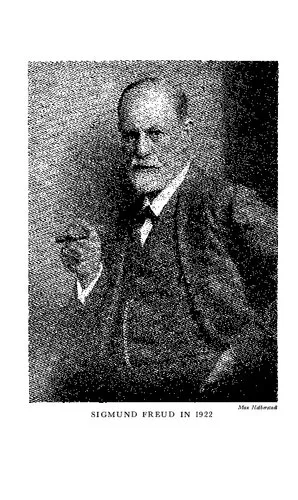The standard edition of the complete psychological works of Sigmund Freud. Vol. 18, 1920-1922, Beyond the pleasure principle, Group psychology and other works
4.7
Reviews from our users

You Can Ask your questions from this book's AI after Login
Each download or ask from book AI costs 2 points. To earn more free points, please visit the Points Guide Page and complete some valuable actions.The eighteenth volume of 'The Standard Edition of the Complete Psychological Works of Sigmund Freud' covers the pivotal period from 1920 to 1922 and delves into Freud's exploration beyond the established theories of pleasure, group dynamics, and psychological mechanisms. This volume, containing essays such as 'Beyond the Pleasure Principle' and 'Group Psychology and the Analysis of the Ego', unveils the evolution of Freud's thinking and its implications for psychoanalysis and broader psychological paradigms.
Detailed Summary
The volume begins with 'Beyond the Pleasure Principle', a compelling exploration that challenges Freud's earlier views centered around the pleasure principle, which posits that human beings are driven to seek pleasure and avoid pain. In this essay, Freud introduces the concept of the death drive (Thanatos), a counterbalance to the life instincts (Eros) and a revolutionary idea suggesting an innate compulsion towards tension reduction and, ultimately, death. This theory marked a cornerstone in understanding human behavior as a complex interplay of both life-sustaining and self-destructive drives.
'Group Psychology and the Analysis of the Ego', another significant essay in this volume, extends Freud's theories into the social realm. It examines how individual psychological mechanisms operate within group settings. Freud uses the concepts of identification and libido to explore how individuals conform within groups, highlighting the dynamics of group cohesion, leadership, and collective behavior. This essay provides a foundational psychoanalytic interpretation of social processes and has profound implications for understanding social and organizational behavior.
The volume also includes several shorter works and notes, each contributing to a broader understanding of human psychology. Among these are essays on psychogenesis of a case of homosexuality in a woman, further discussions on dream analysis, and critical reflections on psychoanalytic practice and theory advancement. Each essay represents a piece of the mosaic that is Freud’s comprehensive psychoanalytic theory.
Key Takeaways
- The introduction of the death drive marks a significant shift in Freudian psychology, suggesting an innate tendency towards self-destruction and repetition of unpleasurable experiences.
- 'Group Psychology and the Analysis of the Ego' provides insights into how individual personality is often subsumed within group contexts, highlighting mechanisms of conformity and influence.
- Freud's continued development of psychoanalytic theory during this era reflects his responsiveness to new clinical observations and sociocultural contexts, enhancing the depth and applicability of psychoanalysis.
Famous Quotes from the Book
"The pleasure principle, then, is a tendency operating in the service of a function whose business it is to protect the life of the individual." - Sigmund Freud
"It is after all only the problem of the individual human being and of his characteristics and functions in his relations to others and to external reality." - Sigmund Freud
Why This Book Matters
This volume is crucial because it represents a period of major theoretical transition and expansion in Freud’s work. The concepts of the death drive and the dynamics of group psychology have had lasting impacts, influencing fields beyond psychoanalysis, such as sociology, organizational behavior, and even political science. Freud's incisive analysis provides a platform for understanding both individual and collective human behaviors, offering tools that are invaluable for psychologists, therapists, and those interested in cultural studies.
The fact that Freud was willing to revise his theories so radically highlights his commitment to understanding the complexities of the human psyche. His ability to question previously held beliefs and adapt to emerging data is a testament to his intellectual rigor and has underpinned the continued relevance and development of psychoanalysis as both a clinical practice and a theoretical framework.
Free Direct Download
You Can Download this book after Login
Accessing books through legal platforms and public libraries not only supports the rights of authors and publishers but also contributes to the sustainability of reading culture. Before downloading, please take a moment to consider these options.
Find this book on other platforms:
WorldCat helps you find books in libraries worldwide.
See ratings, reviews, and discussions on Goodreads.
Find and buy rare or used books on AbeBooks.
1334
بازدید4.7
امتیاز50
نظر98%
رضایتReviews:
4.7
Based on 0 users review
"کیفیت چاپ عالی بود، خیلی راضیام"
Questions & Answers
Ask questions about this book or help others by answering
No questions yet. Be the first to ask!


